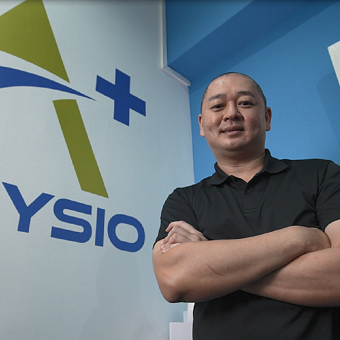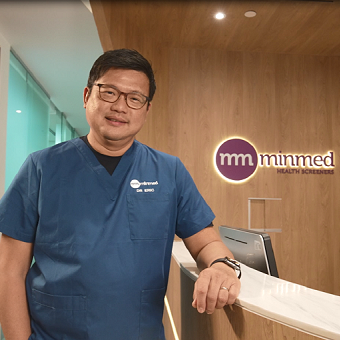6 things to consider when starting a medical practice in Singapore
6 things to consider when starting a medical practice in Singapore
Striking it out on your own to start a private practice can be a rewarding and exciting journey. You get to build your own practice from the ground up, schedule your own working hours and create a work culture that you subscribe to. At the same time, you can strive to build more meaningful relationships with your patients.
However, your entrepreneurship path might be fraught with many challenges. Apart from your job, you will also have to fill multiple shoes to oversee your entire business operations and expansion.
Nevertheless, with keen business drive and the right support, it does not need to be as hard as you think. To plan ahead as a medical entrepreneur – or medipreneur as we call it – you should ask yourself (and be able to answer) these six questions.
- How many hours do I want to spend at my practice?
As a medipreneur, your work scope will extend beyond your medical profession. You are now playing the role of not only a medical professional, but also a business owner in charge of everything else that comes with running your own practice.
This includes, but definitely is not limited to, many other functions you may never imagined having to manage, such as marketing your practice, business cash flow to make payroll, IT infrastructure, hirings and HR policies, as well as administrative tasks like inventory management, equipment maintenance and negotiating your lease.
Doing all of these can be time-consuming and stressful. Fortunately, via OCBC Velocity, business owners can access free Invoice Management tools to start tracking their monthly receivables and payables, adopt e-invoicing, and utilise the information to forecast their future cash position. You can also make use of your OCBC business account for other digital tools to make your life easier, such as setting up your monthly payroll digitally. - How much starting capital do I need?.
Forging the next leg of your career as a medipreneur can be expensive. Before you even get to see your first patient, you need to source for suitable locations, place rental deposits, renovate, equip your practice, hire skilled staff, purchase medical inventory and equipment, ready the necessary insurance policies and more.
These are all decisions that cannot be taken haphazardly either, as they can determine whether your practice flourishes. The costs can vary significantly depending on your clinic’s type, size and offerings.
There are generally two ways to fund your medical practice: 1) you can self-fund or source for investments, or 2) take a bank loan.
With OCBC, medipreneurs can get up to $300,000 worth of financing through the Medi-Starter Loan to kickstart their new clinic, even if you do not have any business or financial track record.
For more established clinics, the Medi-Expansion Loan goes up to $500,000, and can be especially useful for those adding ancillary services to their practice or acquiring complementary clinics. Most clinics take this loan after operating for 1.5 years.
At OCBC, 1 in 2 medipreneurs bank with us. Our dedicated healthcare specialists will also be at hand to support your cash flow requirements. For example, you can reduce the impact to your cash flow by taking a rental bond underwritten by Great Eastern General Insurance (which is part of the OCBC Group), instead of locking up a security deposit worth between 3 and 6 months of rent to your landlord when leasing your space. Other cash flow solutions also include trade finance tools.
- What are the common types of business structures I can use for my private clinic?
There are generally three types of businesses that medipreneurs may choose:
- Sole proprietor – a sole proprietor is an individual who is wholly liable for the business. This is one of the simplest business structures, as it simplifies operations and accounting, with the profit (or losses) for the company being attributed to you. However, the profits will also be 100% taxable on you, as the owner, at your personal income tax rate – which can be higher than the corporate tax rate of 17%.
- Partnership – Running a partnership simplifies the accounting, decision-making and profit-sharing structure of your company as well. Partners are individual Medical Practitioners who face unlimited liability. Similarly, profits will be 100% taxable at your prevailing tax rate – which can be higher than the corporate tax rate of 17%.
- Private Limited – Managing a private limited is the most common option for those who wish to venture into private practice. While there may be higher compliance and liquidation costs, there is also potentially lower taxes, as profits are taxed at a flat rate of 17%. More importantly, you get to enjoy limited liability. You can also purchase Keyman Insurance for the sustainability of your practice.
It is typically recommended that medipreneurs set up Private Limited companies to own their business interests. This way, you face limited liabilities while getting to enjoy more favourable business tax rates than personal income rates of up to 22%.
Of course, you can also choose to take over an existing medical practice rather than setting up one on your own. Regardless, doing this will also require you to choose whether you want to run a sole proprietorship, partnership, or private limited firm. For established medical groups, there are M&A loans to partially finance the takeover of clinics.
- How to manage your Professional Risks?
When you choose to start a private medical practice, you lose the backing of having a well-established medical institution behind you. This makes it worthwhile to consider your exposure to professional risks, which can affect your career, reputation and finances.
One way to manage your risks is by choosing a suitable business type you wish to incorporate. As mentioned above, a private limited company minimises your personal liabilities in the business.
The Singapore Medical Association (SMA) states that “it is every doctor’s responsibility to ensure they are adequately covered”. Secure your professional liability by purchasing professional indemnity insurance to cover you in the event of any negligent act, or error/omission in conducting your medical profession.
- What are the legislative requirements of running a practice in Singapore?
As of January 2020, the new Healthcare Services Act (HCSA) replaced the Private Hospitals and Medical Clinics Act (PHMCA) and PHMCS Regulations in governing the provision of mainstream healthcare services in Singapore.
Medical practitioners should familiarise yourselves with the provisions.
For more information on legislative requirements, visit the Ministry of Health (MOH) website.
Jumpstart your medical practice today
Whether you are a general practitioner, specialist, dentist, aesthetic physician or Allied Health practitioner, OCBC is here to take care of your setup needs so you can focus on taking care of what’s truly important – your patients.
Begin the next chapter of your medical journey with OCBC’s team of healthcare specialists, who have a wealth of knowledge in your industry. Get quick access to financing, advice on day-to-day cash and operations management, digital solutions and more to help you with your medipreneur journey. Talk to an OCBC Healthcare Specialist today.
Disclaimer
You may be directed to third-party websites. OCBC Bank shall not be liable for any losses suffered or incurred by any party for accessing such third party websites or in relation to any product and/or services provided by any provider under such third-party websites.
The information provided herein is intended for general circulation and/or discussion purposes only. Before making any decision, please seek independent advice from professional advisors. No representation or warranty whatsoever in respect of any information provided herein is given by OCBC Bank and it should not be relied upon as such. OCBC Bank does not undertake any obligation to update the information or to correct any inaccuracy that may become apparent at a later time. All information presented is subject to change without notice. OCBC Bank shall not be responsible or liable for any loss or damage whatsoever arising directly or indirectly howsoever in connection with or as a result of any person acting on any information provided herein. Any reference to any specific company, financial product or asset class in whatever way is used for illustrative purposes only and does not constitute a recommendation on the same.
Discover other articles about:


